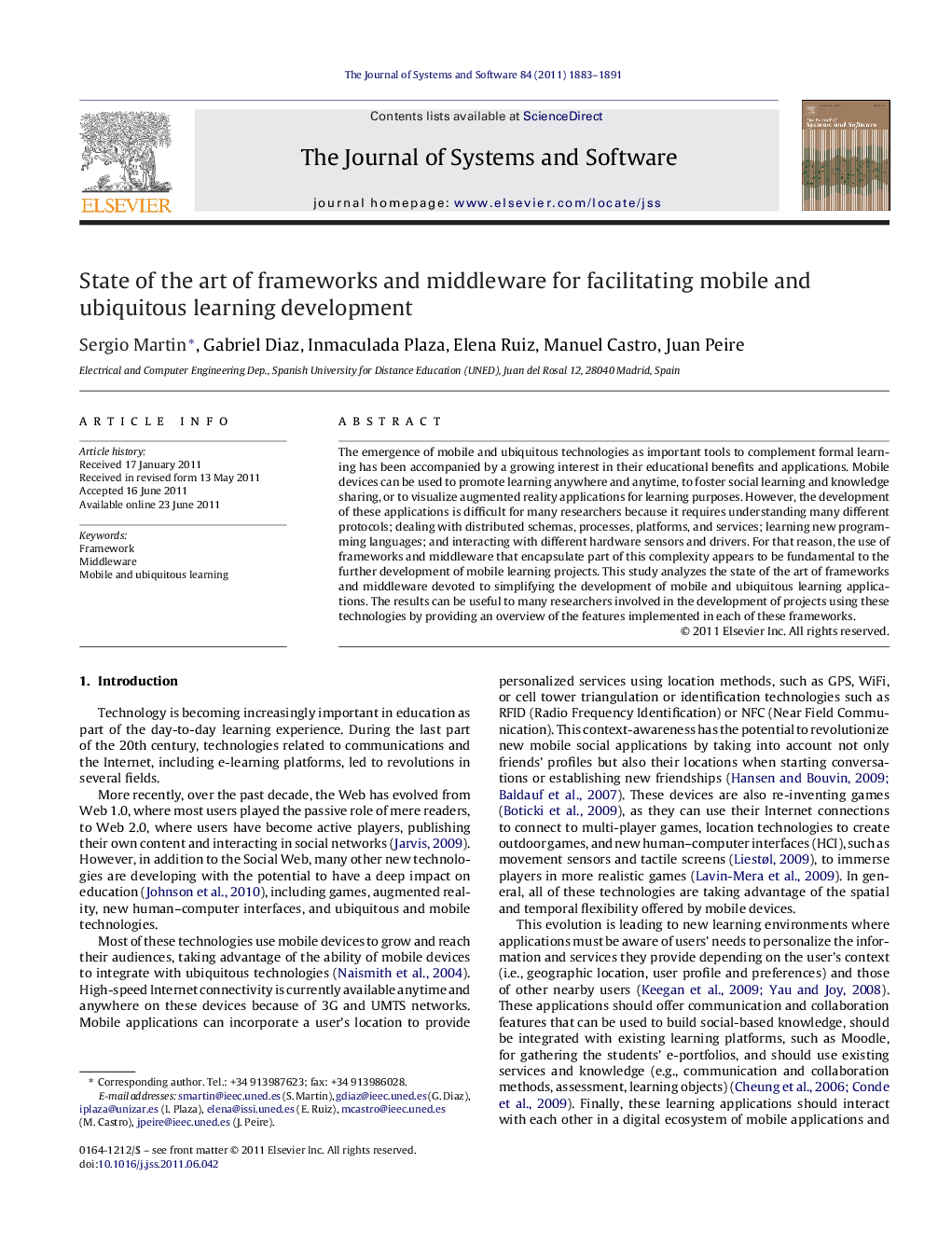| Article ID | Journal | Published Year | Pages | File Type |
|---|---|---|---|---|
| 461224 | Journal of Systems and Software | 2011 | 9 Pages |
The emergence of mobile and ubiquitous technologies as important tools to complement formal learning has been accompanied by a growing interest in their educational benefits and applications. Mobile devices can be used to promote learning anywhere and anytime, to foster social learning and knowledge sharing, or to visualize augmented reality applications for learning purposes. However, the development of these applications is difficult for many researchers because it requires understanding many different protocols; dealing with distributed schemas, processes, platforms, and services; learning new programming languages; and interacting with different hardware sensors and drivers. For that reason, the use of frameworks and middleware that encapsulate part of this complexity appears to be fundamental to the further development of mobile learning projects. This study analyzes the state of the art of frameworks and middleware devoted to simplifying the development of mobile and ubiquitous learning applications. The results can be useful to many researchers involved in the development of projects using these technologies by providing an overview of the features implemented in each of these frameworks.
► We analyze the state of the art of frameworks and middleware devoted to simplifying the development of mobile and ubiquitous learning applications. ► The features implemented by each of the existing frameworks are analyzed. ► Most of the frameworks found are not designed for general purposes. ► There are no frameworks for current mobile platforms and operating systems, i.e., iPhone OS, Android, RIM and Symbian. ► The web-based frameworks offer very limited functionalities because they cannot access sensors.
